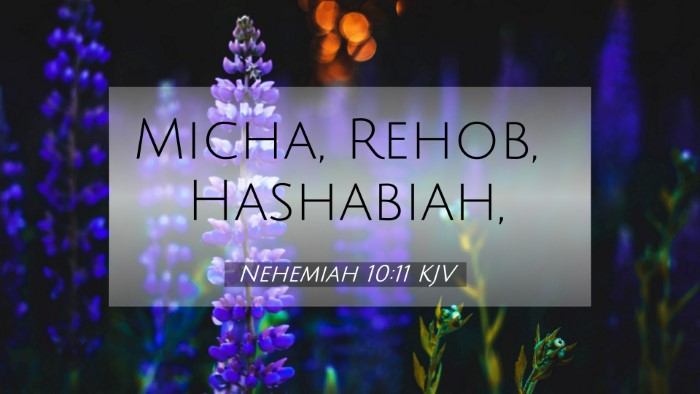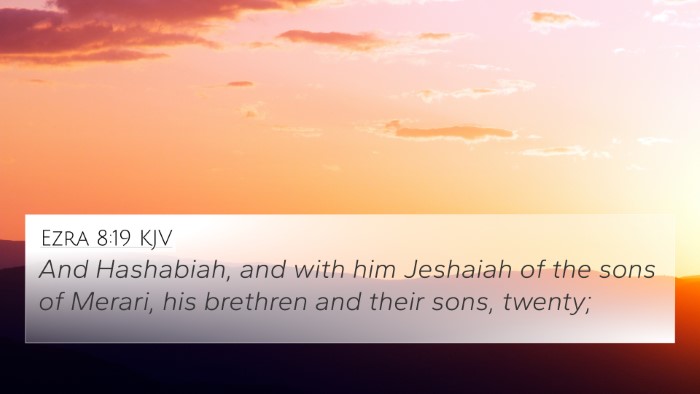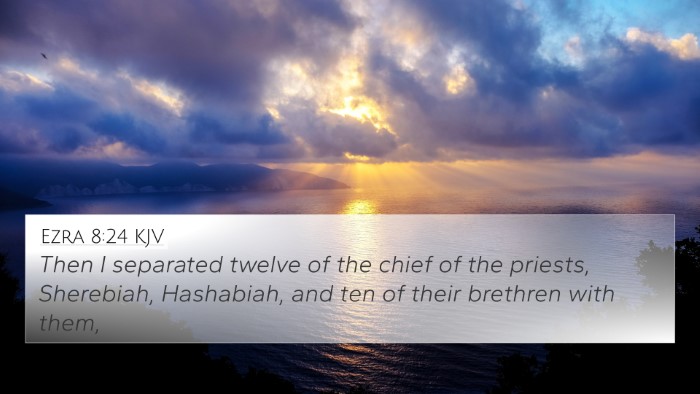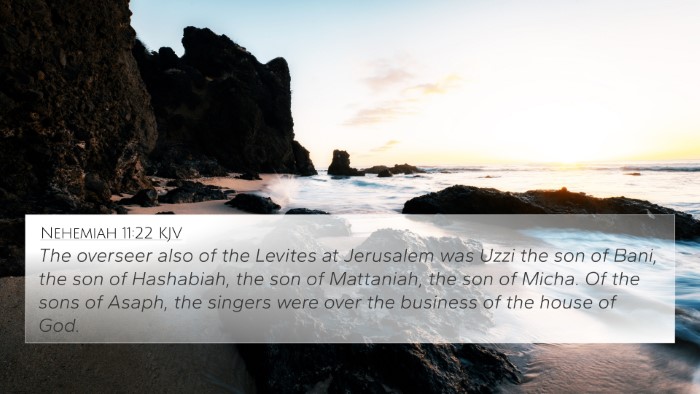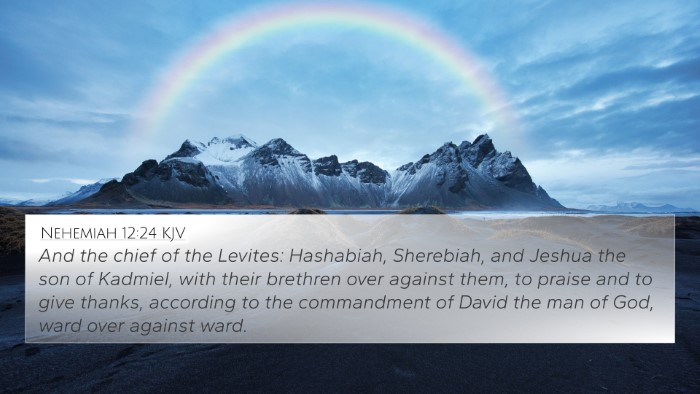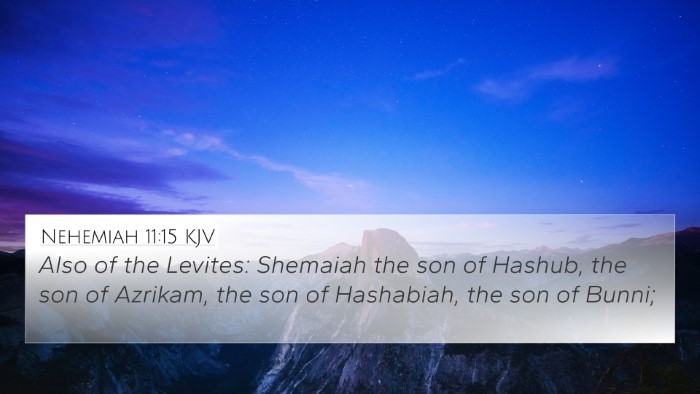Nehemiah 10:11 - Verse Meaning and Interpretation
Nehemiah 10:11 states: "And we cast the lots among the priests, the Levites, and the people, for the wood offering, to bring it into the house of our God, after the houses of our fathers, at times appointed year by year, to burn upon the altar of the Lord our God, as it is written in the law." This verse emphasizes the organized approach that the people of Israel took to ensure that their offerings were faithfully maintained, highlighting their commitment to fulfilling divine instructions.
Summary of Commentary Insights
The interpretations of this verse by public domain commentators reveal a rich understanding of its implications for the Israelites and for modern readers within a Biblical context.
-
Matthew Henry's Commentary:
Henry emphasizes the importance of diligence in worship and the proper administration of offerings. The casting of lots signifies the seriousness with which they approached their obligations, ensuring that all were involved and that no one faction dominated the responsibilities. This act symbolizes unity and recognizes that the duty to God’s house is a collective responsibility.
-
Albert Barnes' Notes:
Barnes points out that the "wood offering" was a specific provision under the Law that the Israelites were commanded to bring for their sacrifices. The precise allocation of these duties demonstrates an organized community adhering to God's laws, reflecting their dedication to ritual purity and observance of sacrificial practices as a method of connection with God.
-
Adam Clarke's Commentary:
Clarke emphasizes the collective action taken to fulfill the divine command, indicating a shared commitment among the priests, Levites, and people. He also notes that this verse illustrates a pattern for worship that transcends time, indicating that proper worship involves both individual and communal participation. The regularity of the offerings underscores the importance of maintaining a continual relationship with God.
Key Themes and Interpretations
In synthesizing these commentators, several key themes arise from Nehemiah 10:11:
- Collective Responsibility: The verse illustrates that worship is a communal act, requiring participation from all members of the community.
- Adherence to Divine Instruction: The mention of the Law indicates the necessity of following Biblical directives in worship.
- Organization in Worship: The casting of lots reflects a structured approach to worship, ensuring fairness and accountability.
- Continuity of Worship Practices: The regularity noted points to the importance of ritual in maintaining a relationship with God.
Bible Verse Cross-References
This verse aligns with several others that enrich its meaning and highlight the connections between different scriptures:
- Leviticus 6:12-13: Discusses the perpetual fire on the altar, symbolizing continuous offerings.
- Deuteronomy 12:5-7: Highlights the importance of bringing offerings to the dedicated place for worship.
- Ezra 3:4: Mentions the regular offerings made during the rebuilding of the temple.
- 1 Chronicles 23:28-31: Outlines the duties of the Levites in terms of offerings and sacrifices.
- Romans 12:1: The New Testament parallel that emphasizes presenting our bodies as living sacrifices.
- Hebrews 13:15: Offers the symbolic understanding of praise as a continued offering to God.
- Philippians 4:18: Paul speaks of his needs being met through the offerings of the church, mirroring the collective aspect.
Thematic Bible Verse Connections
This verse opens up a broader discussion on themes of sacrifice, service, and communal worship within the Scriptures:
- Sacrificial System: The Old Testament laid out structured offerings that inform New Testament understandings of sacrifice.
- Community in Worship: Verses across both Testaments illustrate how collective worship is a core principle (Acts 2:42-47).
- Obedience to God: Cross-references throughout the Bible exemplify the necessity of obeying God’s commandments (John 14:15).
- Divine Provision: Many passages reflect God’s provision in response to obedience and faithfulness (Malachi 3:10).
Conclusion
The interplay between Nehemiah 10:11 and related Biblical texts offers a holistic understanding of worship, community responsibility, and the unwavering adherence to God’s laws. Through the lens of Biblical cross-references, we see a unified narrative that encourages believers to engage in both personal piety and communal worship, emulating the faithful practices of the Israelites as they aimed to serve God in their generation.
For those studying the Bible, understanding such connections fosters deeper insights into the meanings of scripture and how they can be applied to contemporary faith life.


